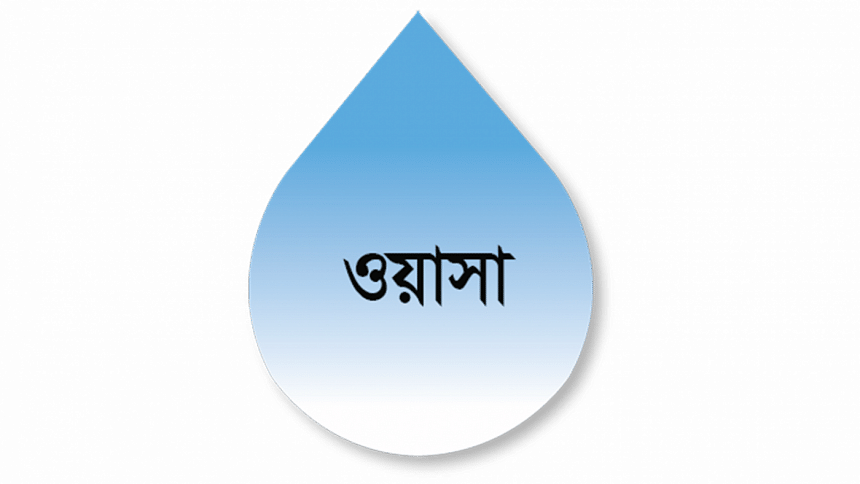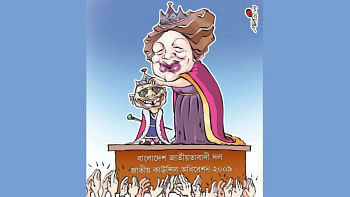HC unhappy with LGRD for failure to examine Wasa water

The High Court today expressed dissatisfaction on the ministry of the local government and rural development (LGRD) for not complying with its order to examine the quality of the water supplied by the Dhaka Water Supply and Sewerage Authority (Wasa) through a committee.
During hearing a writ petition, the HC bench of Justice JBM Hasan and Justice Md Khairul Alam said only 22 bottles of water from 11 zones in Dhaka are needed for the water test.
“How much money needs for the committee formed by the LGRD ministry to test 22 bottles of water,” the bench questioned.
The LGRD ministry last week sought one-week time more to inform the cost for examining the Wasa water to this court and by doing so, the LGRD ministry is showing the High Court to this court, the bench said, adding that the LGRD ministry is showing irresponsibility.
The bench came up with the observation while hearing the writ petition that challenged the government’s failure to supply safe water to the people.
Deputy Attorney General Motaher Hassan Sazu told The Daily Star that the HC bench expressed dissatisfaction on the LGRD ministry as it sought four-month time to examining the Wasa water and also sought one-week time to inform the cost for testing the water to the HC.
The HC bench also fixed May 16 for passing further order over this issue, he added.
Earlier in the day, writ petitioner Advocate Tanvir Ahmed submitted a report to the HC saying that water supplied by the Wasa is highly contaminated and unsafe in 16 areas of Dhaka.
The areas are-- Jurain, Daniya, Shaympur, Uttara Sector-4, Lalbagh, Rajar Deuri, Malibagh, Madartek, Banashree, Goran, Raysaheb Bazar, Mohammadpur Basila, Mirpur, Pallabi, Kazipara and Sadargat, he said.
Advocate Tanvir told The Daily Star that he submitted the report to the HC following the print and social media reports as per its May 8 order.
On May 8, the LGRD minister submitted a report to the HC mentioning that it has formed a four-member committee to examine the quality of the Wasa water.
Members of the committee are from the Ministry of Local Government, Rural Development and Cooperatives, Bangladesh University of Engineering and Technology, Dhaka University and International Centre for Diarrhoeal Disease Research, Bangladesh to examine the quality of the water supplied by Wasa.
Dhaka Wasa stated in the report that it would examine the water at the laboratories of DU, BUET and icddr,b after getting the necessary funds.
Following the same writ petition filed by Tanvir Ahmed, the HC on November 7 last year ordered the LGRD ministry to form a four-member committee to test its water quality.
With the writ petition, Tanvir Ahmed included a report published by The Daily Star on October 12.
The Daily Star report, based on a World Bank study, said 98 per cent of people of the country have access to water from technologically-improved sources, but E.coli contamination was found in 80 per cent of the household tap water across the country.
WHAT DID THE COMMITTEE SAY?
On May 8, Wasa submitted a report to the HC mentioning that it had formed a four-member committee to examine the quality of the Wasa water.
Members of the committee are from the Ministry of Local Government, Rural Development and Cooperatives, Bangladesh University of Engineering and Technology, Dhaka University and International Centre for Diarrhoeal Disease Research, Bangladesh to examine the quality of the water supplied by Wasa.
Dhaka Wasa stated in the report that it would examine the water at the laboratories of DU, BUET and icddr,b after getting the necessary funds.
The Wasa will take at least four months to get the Wasa water tested at the labs, DAG Motaher Hossain Sazu also said.
Following the same writ petition filed by Tanvir Ahmed, the HC on November 7 last year ordered Dhaka Wasa to form a four-member committee to test its water quality.
With the writ petition, Tanvir Ahmed included a report published by The Daily Star on October 12.
The Daily Star report, based on a World Bank study, said 98 percent of Bangladesh’s people had access to water from technologically-improved sources, but E coli contamination was found in 80 percent of the household tap water across the country.
WHAT DID THE SUFFERERS CLAIM?
On Tuesday, Movement for Safe WASA Water, a platform of sufferers, held a mass hearing where it showcased 22 bottles of water which they claimed to have collected from different households of Jurain, Shyampur, Kadamtali and Mirhajirbag areas under ward no 51, 52, 53, 54, 58, 59 and 60 of Dhaka South City Corporation.
Two of the bottles had blackish water while the rest contained water that was yellowish.
WHAT WAS TIB’S FINDING ON WASA WATER?
In a recent survey, Transparency International Bangladesh, said that about 91 percent of Wasa clients have to boil water before drinking, although it was already supposed to be safe for drinking.
On an average, this second layer of purification at the individual level costs natural gas worth Tk 332 crore every month.
However, WASA’s Managing Director Taqsem binned the TIB report.
On April 20, Taqsem boasted that Wasa water “is 100 percent pure” while also admitting that sometimes he too boils the water at his home.
“I fail to understand why people would burn gas to boil supply water that is 100 percent pure and safe,” he said at a press conference.

 For all latest news, follow The Daily Star's Google News channel.
For all latest news, follow The Daily Star's Google News channel. 



Comments